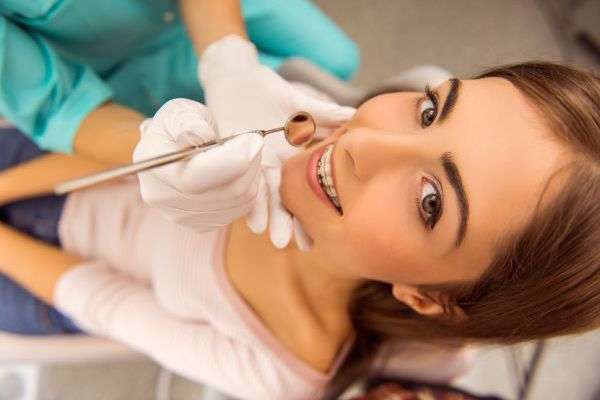 Going in for a dental checkup might not be at the top of your priority list, but it should be. There could be many reasons why you have not been to the dentist’s office for a year or longer. Life can get busy, or you may have fears or anxieties about these visits. Whatever has kept you from making and keeping these appointments, make sure you change your ways and see your dentist regularly.
Going in for a dental checkup might not be at the top of your priority list, but it should be. There could be many reasons why you have not been to the dentist’s office for a year or longer. Life can get busy, or you may have fears or anxieties about these visits. Whatever has kept you from making and keeping these appointments, make sure you change your ways and see your dentist regularly.
The benefits of a dental checkup
Just like a person’s car needs regular maintenance, people’s oral health needs consistent examinations from a trained professional. A dentist has knowledge of the teeth, gums, jaw, and other components of the mouth. A regular visit is an effective way to fight off problems such as tooth decay and gum disease. Checkups are also good opportunities for the dentist to identify problems before they get more serious. Plus, these appointments allow for instruction from the dentist and questions from the patient.
When to get started
Parents should emphasize good oral health from the time their children are born. Once the child starts getting their first tooth, trips to the dentist’s office for a dental checkup can begin. This usually starts around the age of 1, though some children can get teeth as early as a few months after birth. Parents who have put off appointments for their children should get started on wellness checkups immediately.
Frequency of the appointments
Dental professionals agree that patients of all ages should have a dental checkup at least every six months. This regularity helps to establish proper oral health habits. It also allows the dentist to keep on top of emerging abnormalities and conditions such as tooth decay, bite dysfunctions, and jaw pain. Patients who happen to get behind on semiannual visits should catch up by making an appointment right away.
More appointments, as necessary
The twice-a-year rule has some flexibility. Patients who have serious oral health concerns should not wait too long in between visits if issues get worse or if they have intense pain or discomfort. People who have a history of oral health challenges may want to visit the dentist every three or four months instead. The dentist can guide the patient in making the right decision when it comes to the frequency of trips in these situations.
For emergencies
Sometimes, urgent dental matters can arise. These always require immediate attention. Examples of dental emergencies include broken teeth, bleeding gums, jaw pain, and severe tooth pain. During an emergency visit, the dentist may do a partial dental checkup to make sure there are no other serious issues occurring.
Check out what others are saying about our dental services on Yelp: Dental Checkup in Kennewick, WA.
Staying on schedule is good for your health
It is easy to get off track when it comes to health care. A dental checkup is no different. However, if you can make it a point to go to the dentist every six months, you increase your chances of having the oral health you want. You can avoid cavities and other problems, all while enjoying an attractive smile.
Request an appointment or call Gledhill Dental at 509-800-8410 for an appointment in our Kennewick office.
Related Posts
Dental crowns are a popular dental restoration, effectively preserving and enhancing the function of damaged or weakened teeth. These custom-made caps are designed to fit over the existing tooth, providing both structural support and improvements in your smile's appearance. However, not all dental crowns are created equal. The type of dental crown you choose can…
All-on-4® dental implants can replace an entire set of teeth in a way that looks and feels natural. Commonly provided by general, cosmetic, and family dentists, this smile restoration has become a trusted and popular option among patients. With careful planning and professional care, the All-on-4 approach delivers predictable, stable, and natural-looking results for qualified…
Curious about when dental crowns are needed? Read on to learn more about this type of dental restoration. Oral health is often indicative of one's overall well-being. Although teeth are strong, they are susceptible to many problems that can weaken them. Dental crowns are the treatment of choice for such cases. These tooth-shaped caps fit…


